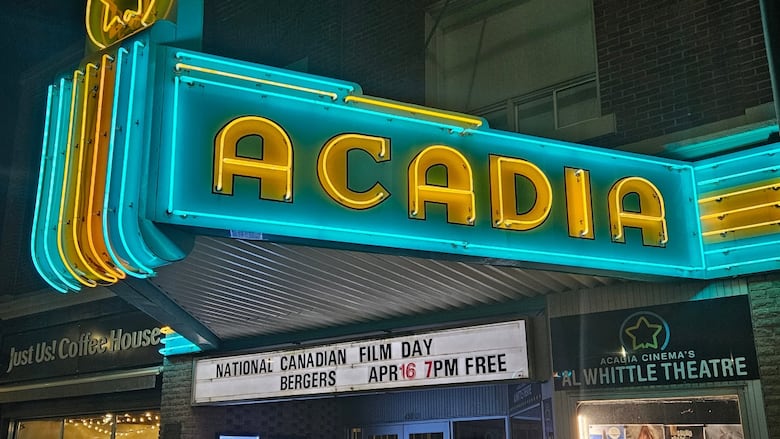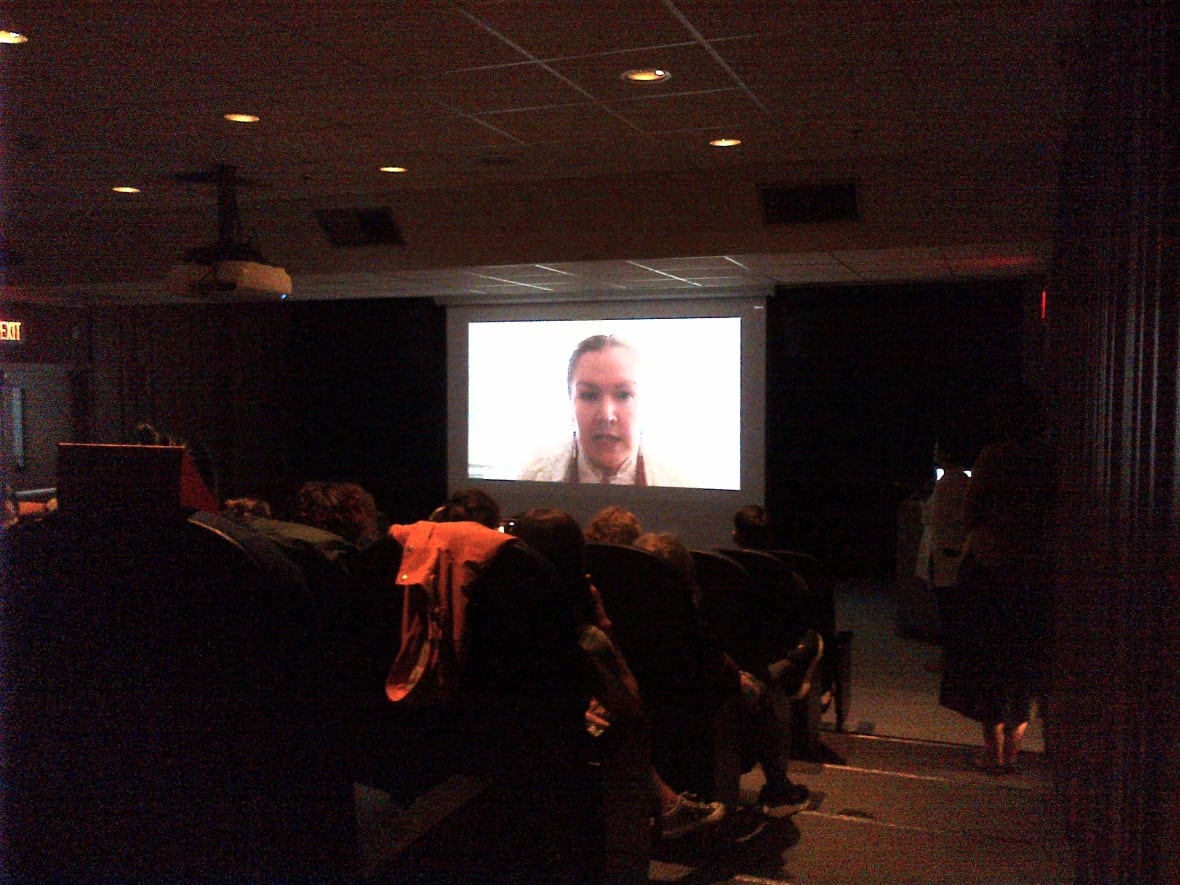In the age of streaming, Nova Scotia's indie cinemas remain community hubs
Across the province, independent movie theatres play a key role in cultural life

In an era when it's second nature to watch a movie anywhere, anytime — on your phone during your morning commute, or on your laptop in an after-work slump — Carsten Knox says more Haligonians than ever are opting for the big-screen experience at Carbon Arc, the city's lone independent cinema.
"It's halfway through the year now, and we have seen more than twice the number of people come through our doors as we saw all of last year," the senior programmer and volunteer says.
Knox — who's been enamoured with Carbon Arc since he caught a film there over a decade ago — traces the bump in numbers to a few key factors: The cinema's new administrator, Alice Body, "someone who is really passionate and engaged in growing the community," the cinema doubling the number of screenings per week, and the launch of the the Nova Scotia Retro Film Festo back in February.
"We showed four Nova Scotia-made, homegrown films that are very hard to see regularly, and almost impossible to see on the big screen," Knox says. By the time Oscar buzz began building around the documentary No Other Land, luck was on the theatre's side as it was the only big screen around showing the film after Cineplex passed on it.
There couldn't be a better time for the city's literal underground cinema — it's housed in the basement of the Nova Scotia Museum of Natural History — to be gaining momentum: Carbon Arc celebrates its 15th birthday July 17—an occasion that the theatre is marking with a special screening of Scala, which, in a meta move, tells the story of an independent cinema that shaped the city it was based in.
"Independent cinema tends to be, just in the programming, something that you wouldn't see at the multiplex," says Knox, summing up both the ethos and coming attractions of the mostly-volunteer-run Carbon Arc and its ilk. "It draws cinephiles. It draws people who consider film an art."
That means that international features, art house oddities, documentaries, and "occasionally, things that are taste-free" (think creature features and campy cult hits) are all on offer.
"The most flattering thing that we get at Carbon Arc … is when people start showing up regularly, whether it's every week or every second week, and they just trust us," Knox adds. "They're just like, 'Yeah, we know that you're going to put us on something interesting, and we like that experience. And we're just going to show up, even if we don't know anything about the film.'"
While the wishes that Carbon Arc would have in mind while blowing out birthday candles doubtlessly include owning its own space and graduating to daily screenings, for now thriving in the face of streaming and multi-screen chain theatres feels like a win.
The smallest movie theatre in Halifax isn't the only one holding on, though: Across Nova Scotia, independent cinemas maintain their status as both a community hub and a lifeline to the larger world of film.
In Liverpool, on the South Shore, the Astor Theatre — a movie house that's been around since the days of silent film — is a hub for the community, showing a mix of both arthouse flicks and more mainstream fare.
"We've got the people who've been going there for generations and generations. We still get so many people who come in and say that they always used to go to the Saturday movies, and it cost them 25 cents," says general manager Katy Hopkins.
Compared to a multiplex that is programmed by people provinces away, Hopkins says locals love to suggest what should show at their local theatre: "I think what the Astor provides is the community input."

(It's worth noting that the Bridgewater outpost of Cineplex, which would have been the closest competitor to The Astor, closed in 2024.)
Organic post-show discussion that spills out into the lobby — and possibly down the street to a pub — is a de rigeur part of catching a movie at Wolfville's Al Whittle Theatre, according to both Emily Bouchard and Adam Lawlor, the board member and promotions committee chair and film programming chair, respectively, of the Annapolis Valley's indie movie destination.
With margaritas available to viewers during a screening of Practical Magic, and two cookies and a coke on the menu during David Lynch screenings (the former being a movie plot detail, the latter the director's favourite snack), Bouchard explains that seeing a movie at the Al Whittle — or any small-scale movie house—is an experience because of the big screen, yes, but also because of the passion of being surrounded by other film fanatics.
Lawlor says that going to a small cinema "is like going to church: Where you're in a big room for sharing this experience, and you can't focus on anything else. There's nothing else going on. You're not feeling like you could be doing a million other things. You're not guilty of thinking, 'Oh, I've got to check my emails. I've got to check my messages.' It's that you are 100 per cent dedicated to [the experience] — and in a room full of people who are also participating in that ... it doesn't feel like there are a lot of spaces like that anymore."
Back in Halifax, Knox says the community to be found at Carbon Arc is one of his favourite parts of the city: Familiar faces that, screening over screening, bridge the gap from strangers to what he calls "cine-panions" (as in, companions in cinema).
"It might seem a little hokey to some, but it is that community experience, right?" he says. "It's sitting in the dark with a group of people — of like-minded people — and having seen something that they wouldn't get to see otherwise."

